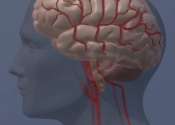Study examines drowning-induced brain injury in children
A new study indicates that children who develop brain injury due to non-fatal drowning often experience severe motor deficits but maintain relatively intact perceptual and cognitive capabilities.
Aug 1, 2017
0
1







